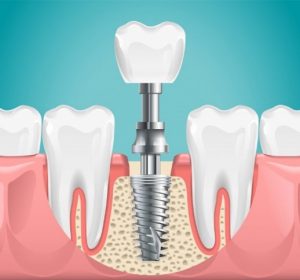 Without a doubt, dental implants are the most reliable way to replace missing teeth. In fact, they can last for 30+ years with very little maintenance beyond good at-home oral hygiene and routine checkups with your dentist. Even though dental implants have a success rate of over 95 percent, there is still a small chance that complications could occur. By calling your dentist as soon as you notice something is wrong, they can prevent your dental implant from failing. Keep reading to learn about some of the reasons for, signs of, and ways to prevent dental implant failure in Windermere.
Without a doubt, dental implants are the most reliable way to replace missing teeth. In fact, they can last for 30+ years with very little maintenance beyond good at-home oral hygiene and routine checkups with your dentist. Even though dental implants have a success rate of over 95 percent, there is still a small chance that complications could occur. By calling your dentist as soon as you notice something is wrong, they can prevent your dental implant from failing. Keep reading to learn about some of the reasons for, signs of, and ways to prevent dental implant failure in Windermere.
Common Reasons Why Dental Implants Fail
When dental implants fail, one of these three reasons is usually to blame:
Gum Disease
This bacterial infection is the leading cause of adult tooth loss as well as dental implant failure. When your gum tissue becomes infected, it may not be able to support your implants any longer. Maintaining good oral hygiene and seeing your dentist twice a year for checkups and cleanings can go a long way toward preventing gum disease.
Tobacco Use
Smoking increases the risk of dental implant failure by up to 20 percent. That’s because tobacco restricts blood flow to the gums, slows the healing process, and impairs immune system function. Most dentists recommend refraining from smoking for at least one week before your dental implant surgery.
Low Jawbone Density
Dental implants are only successful if they have adequate healthy jawbone tissue to fuse with. Otherwise, they won’t have a stable foundation. If your jaw has deteriorated after tooth loss, bone grafting can strengthen the area to provide your implants with ample support.
Signs of Dental Implant Failure
You might be able to protect your new teeth from complete failure by acting quickly. Contact your dentist in Windermere at the first signs of any of these problems:
- Swelling, redness, or tenderness near the implant.
- Bleeding or pus coming from the implant site.
- Feeling as though your implant is loose.
- Severe pain when biting.
- Difficulty chewing.
How to Prevent Your Dental Implants from Failing
Although the risk of dental implant failure is less than five percent, it never hurts to take preventive measures, such as:
- Brushing your teeth twice a day for two full minutes each time.
- Flossing every night before bed.
- Wearing a mouthguard if you play sports or grind your teeth at night.
- Refraining from using tobacco products.
- Visiting your dentist every six months for a checkup and cleaning.
By getting dental implants, you made a major investment in your smile. Naturally, you’ll want to protect your investment! Taking these precautions can help you enjoy your replacement teeth for decades, if not a lifetime.
About the Authors
At Windermere Dentistry, our dentists go above and beyond to provide patients with personalized, comfortable, and comprehensive care. Dr. Matthew McKissock has earned a Fellowship with the Academy of General Dentistry, and Dr. Rupal Thakkar has more than 20 years of experience in the dental field. Together, they are able to complete every step of the dental implant process under one roof for convenient and cost-effective treatment. If you suspect that you’re experiencing dental implant failure in Windermere, FL, don’t hesitate to contact our practice at 407-909-1099.
